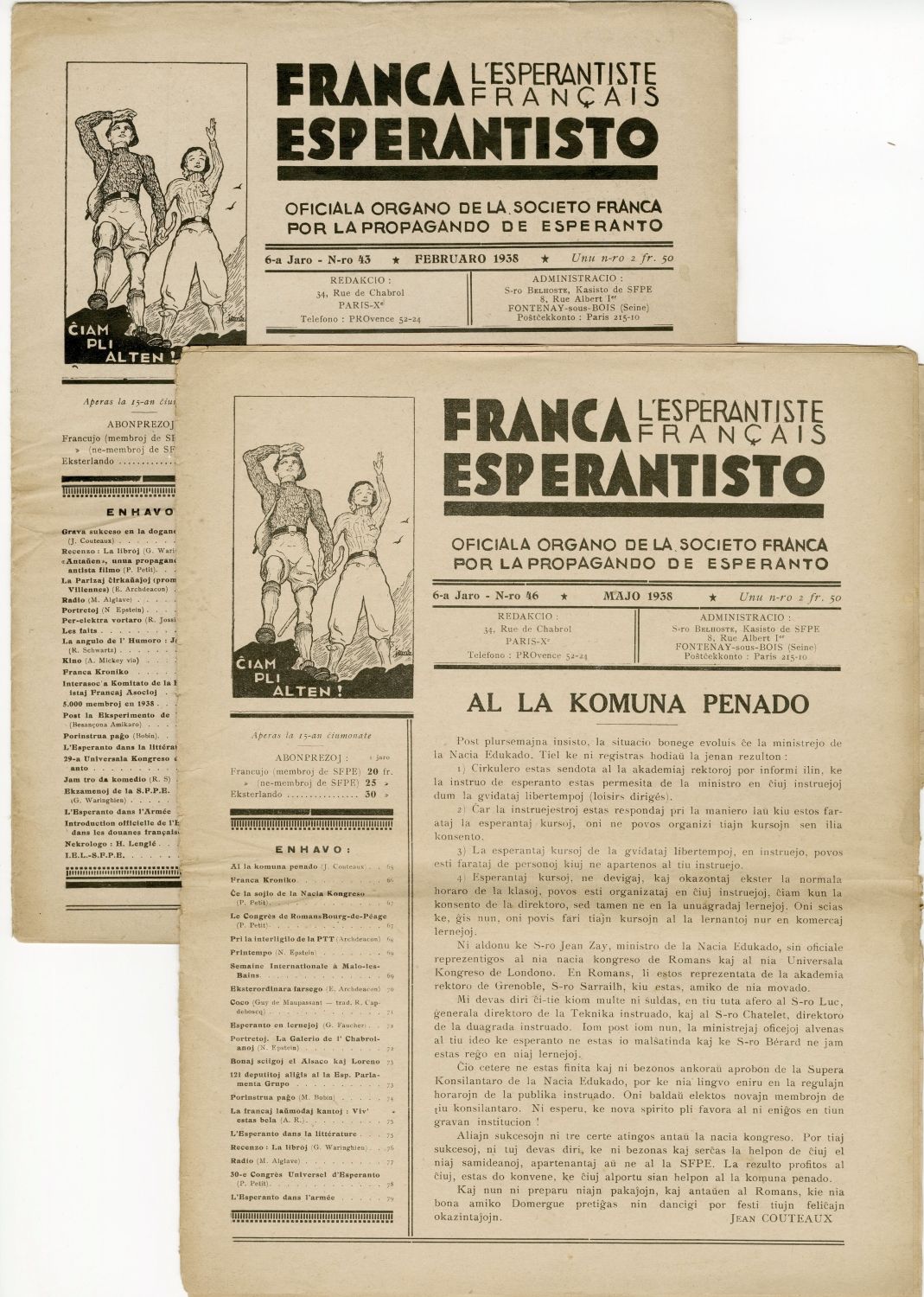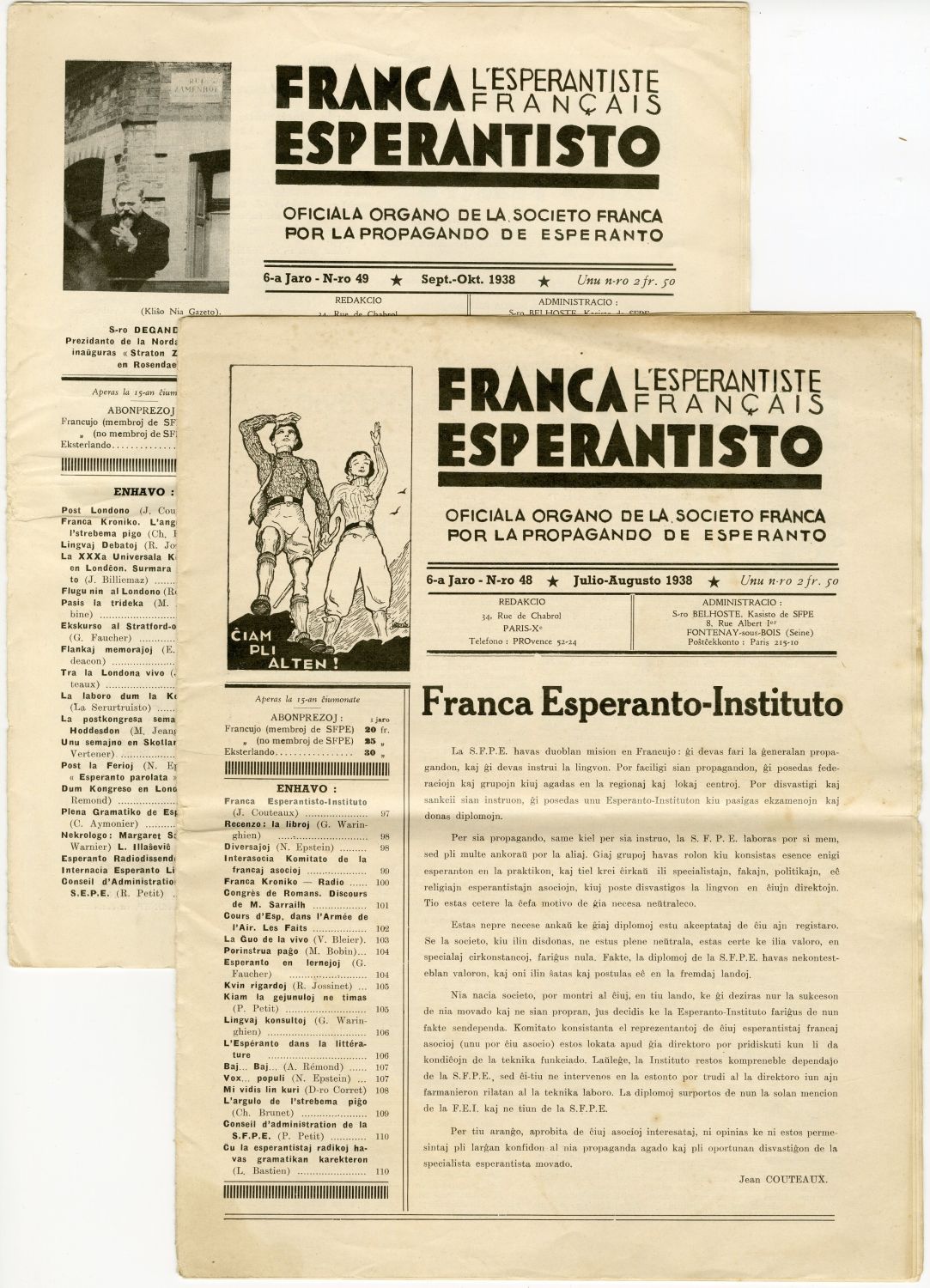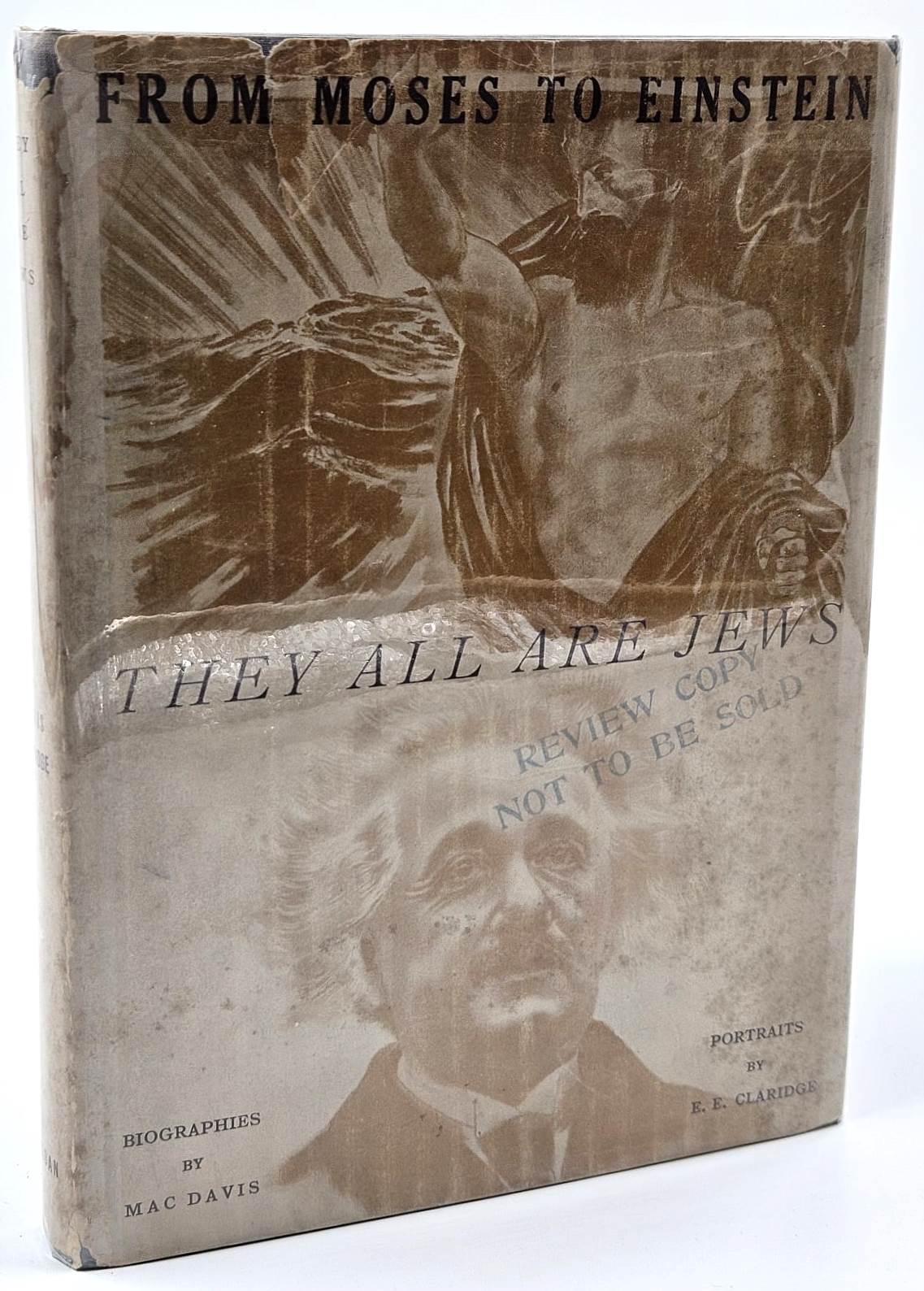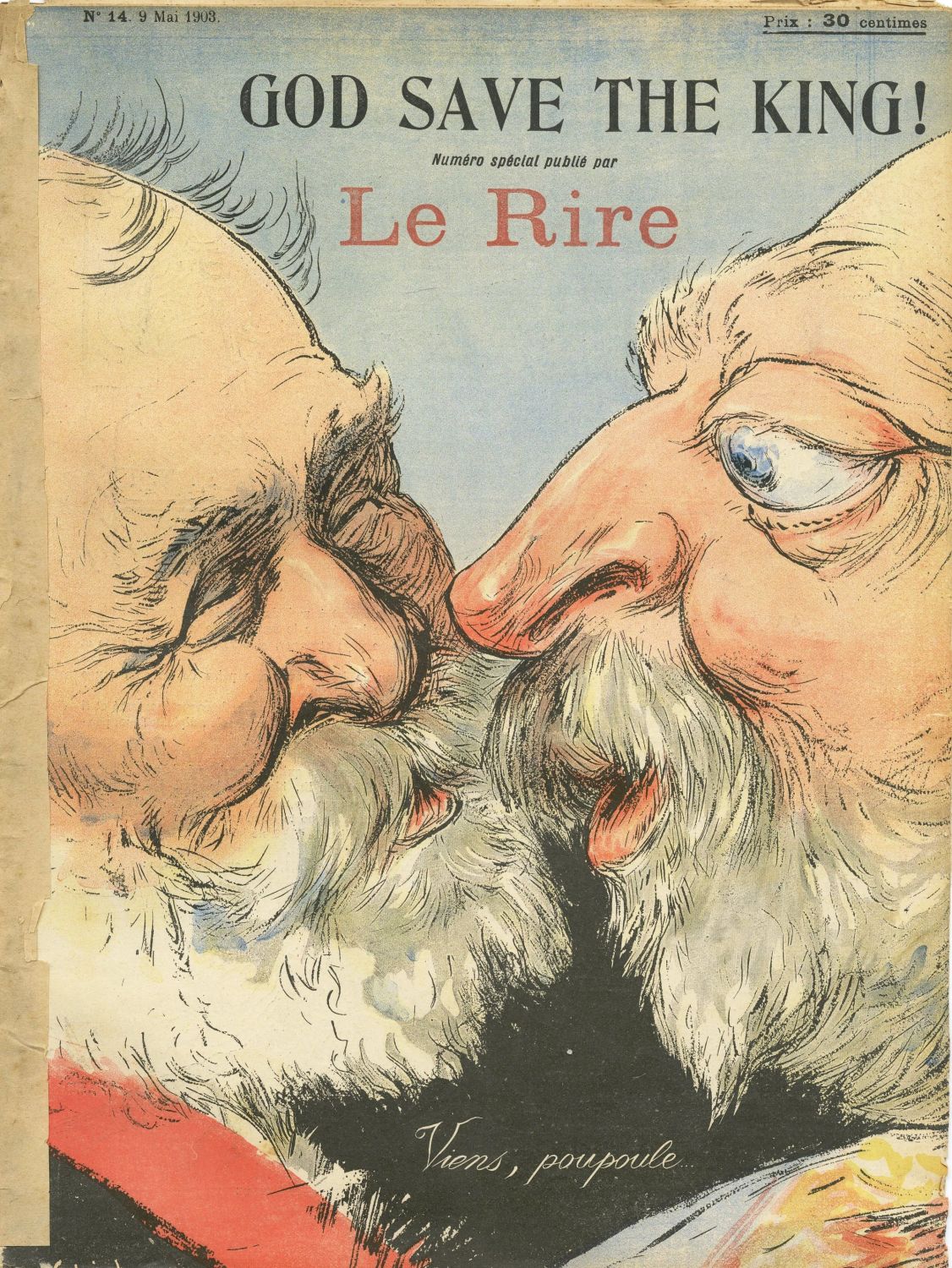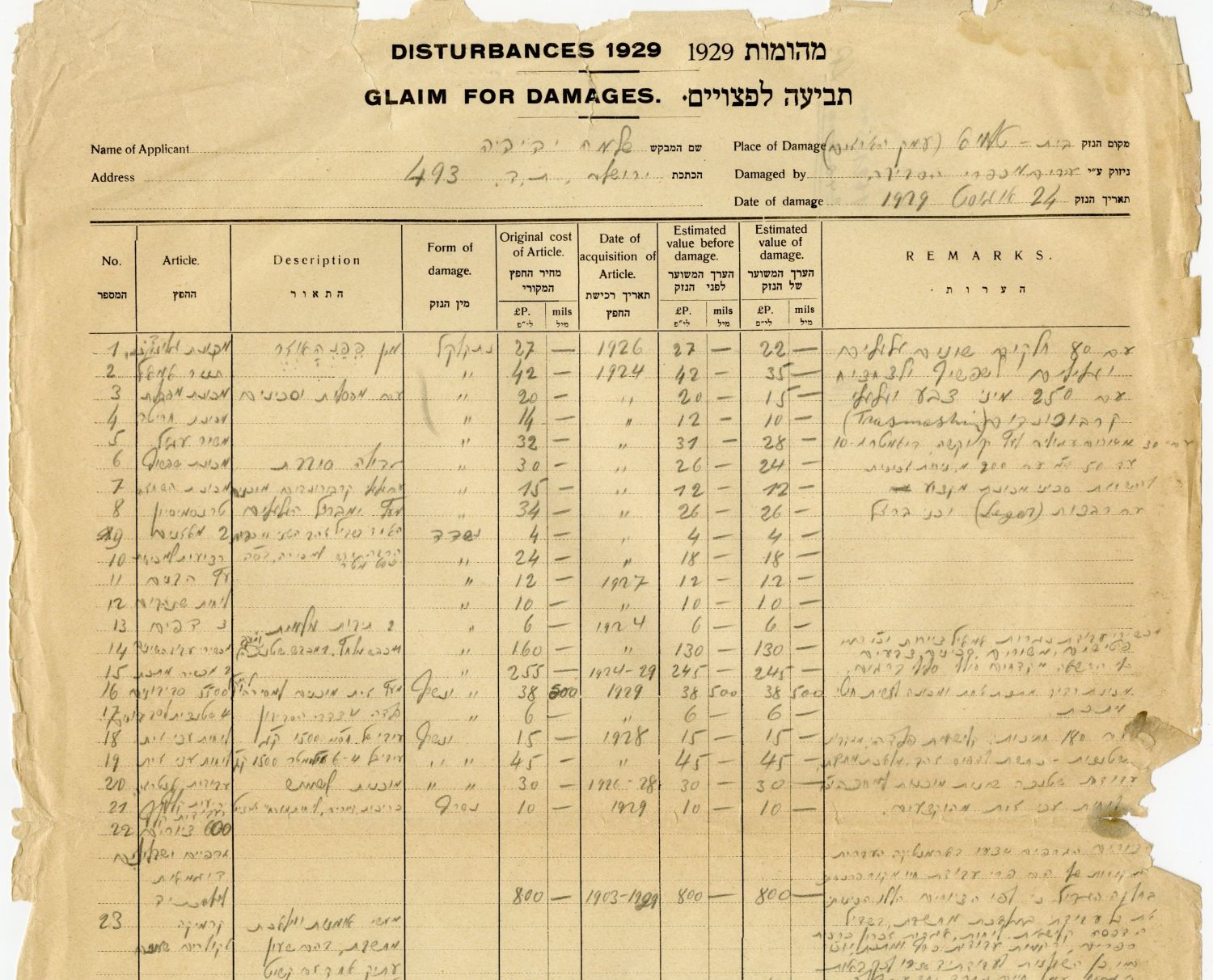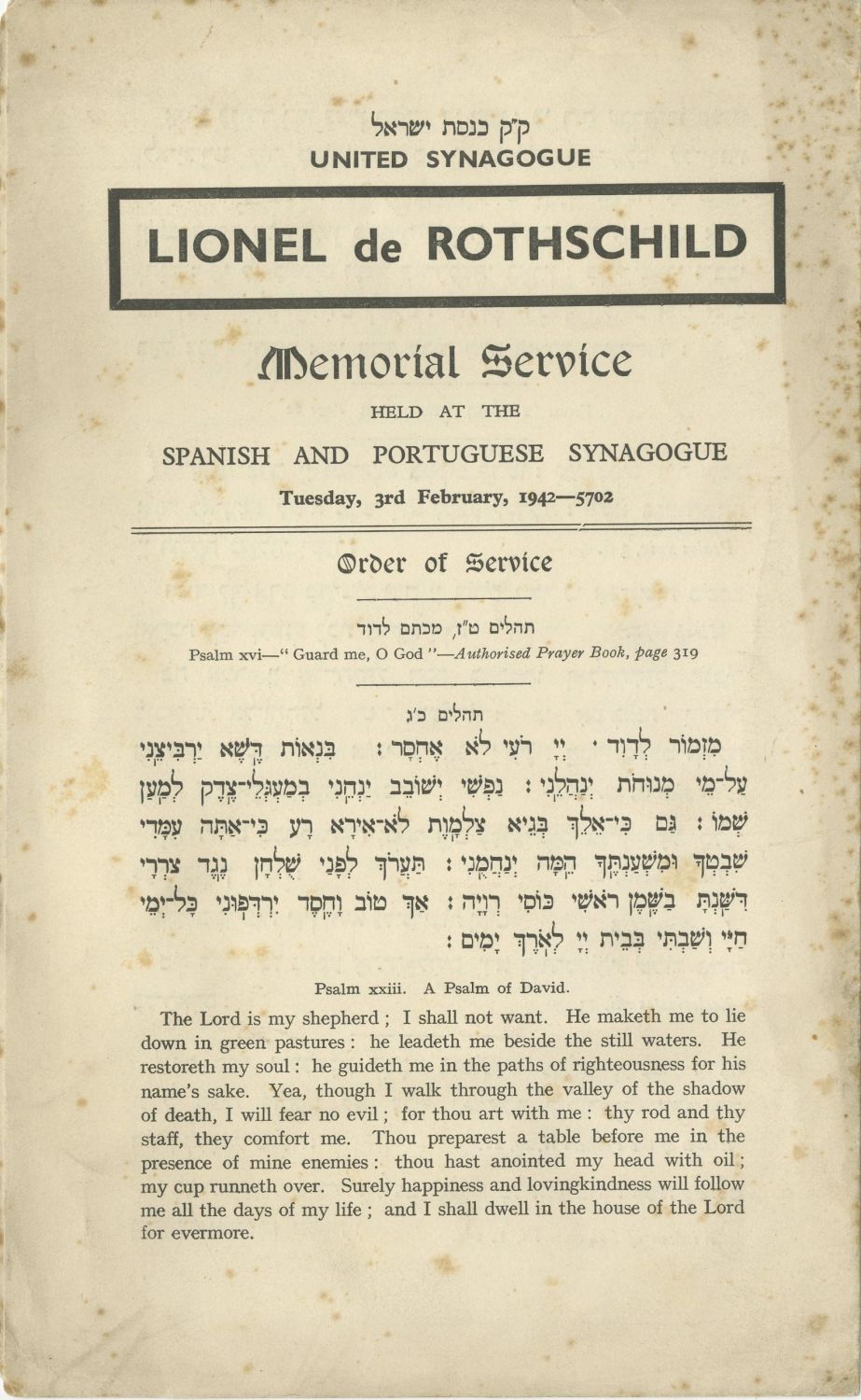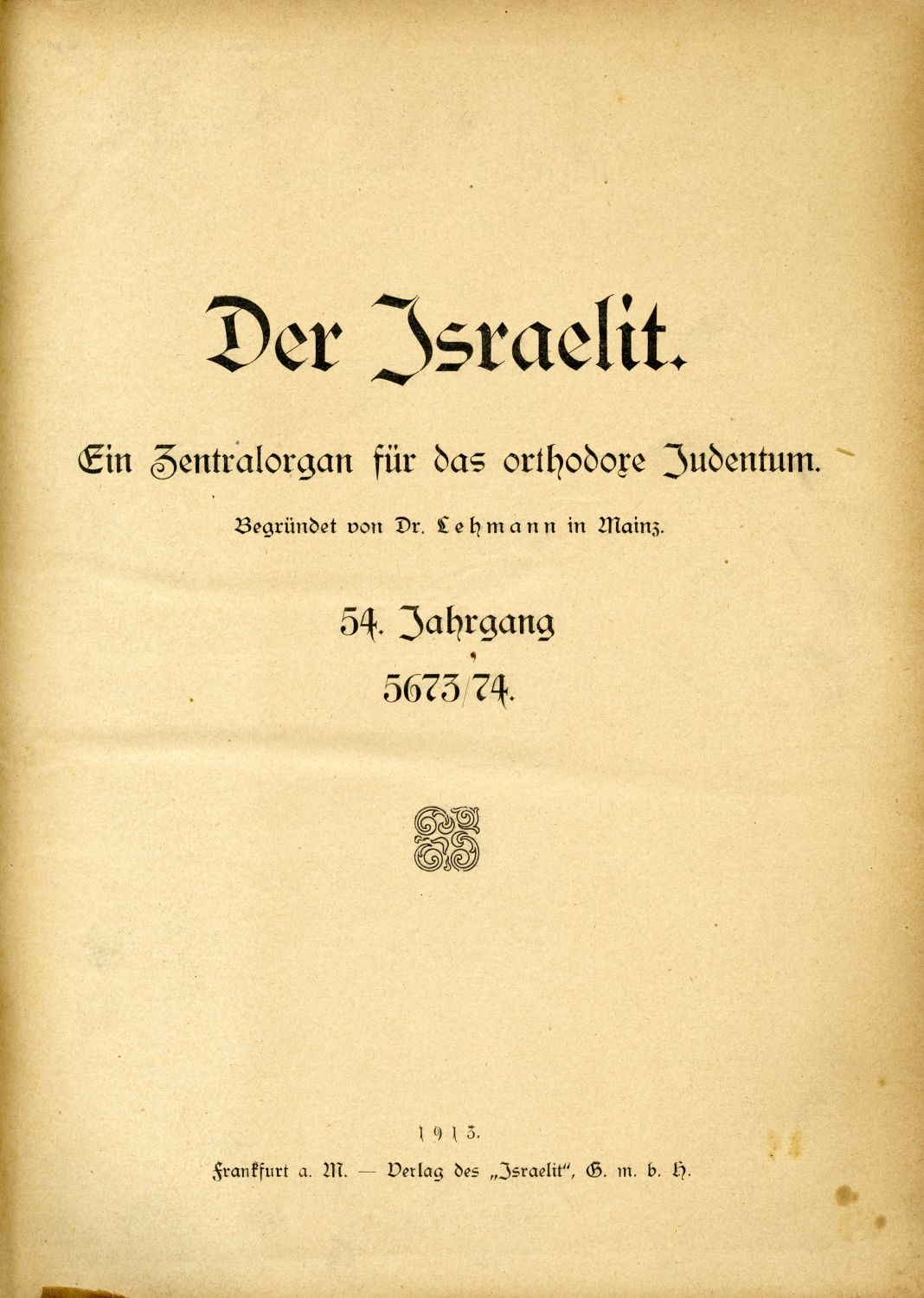10 issues of the French Esperanto monthly - FRANCA ESPERANTISTO and in his full name: FRANCA ESPERANTISTO - L'ESPERANTISTE FRANCAIS - OFICIALA ORGANO SOCIETO FRANCA POR LA PROPAGANDO DE ESPERANTO - The issues were published by Contributors:Société pour la Propagation de l'Esperanto - The Esperanto distribution company in Paris - France, and they are designed to strengthen the language speakers in the cities of France, and to make the language useful in all areas of the society. Before us all the January-December issues (except November) that came out in 1938 - issues 42-49, 51, and issue 54 - that came out in March 1939. Esperanto. Extremely rare.
On the title page of each issue at the top left is a painting of a boy and a girl climbing mountains and the company slogan: CIAM PLI ALTEN - 'Always Higher', which aims to spread the Esperanto language among French society and assimilate it among as many people as possible, as well as 'Editor's Article' by Jean couteaux. In the issues, many articles on strengthening the language-speaking society, propaganda for its dissemination, assistance to language speakers within France before the French authorities, a review of the international conferences of language creators, Esperanto Theater performances, an overview of lectures held in French cities in the language, an overview of language distribution Among other countries, attempts to instill the language among French schools, and more. The magazine began to appear in the early 1930s.
The Esperanto language was developed by Dr. Ludwig Lazer Zamenhof, a Jewish ophthalmologist from Bialystok, in the 1870s. Zamenhof set out to make it the second language of every person in the world, alongside his mother tongue. He formulated most of the grammar rules of the language and its initial vocabulary construction.The idea gained a growing community of supporters, first mainly from the Russian Empire and then also from Central Europe and later the idea of language also spread to other places - Western Europe, America, China and Japan. In 1905 the first Esperanto Congress convened in Bologna Sur-Mer in France This Congress adopted the Bolognese Declaration, which established the principles of the Fundamento de Esperanto as the permanent binding basis of the language and limited the changes in its basic rules.The 1920s are considered the heyday of the language, which attracted many interested for ideological reasons. The Nazis saw Esperanto as a project that contradicted their nationalist worldview, so they boycotted the language and gradually closed all Esperanto associations in Germany and eventually banned any linguistic or social activity in the field, in Germany and any other territory that fell under their occupation. In "Mein Kampf", Hitler described the international language as a "Jewish conspiracy to take over the world". Today Esperanto is the most widely spoken language among the planned languages, with about 2 million speakers.
complete sheets. 31 cm. Good condition.

